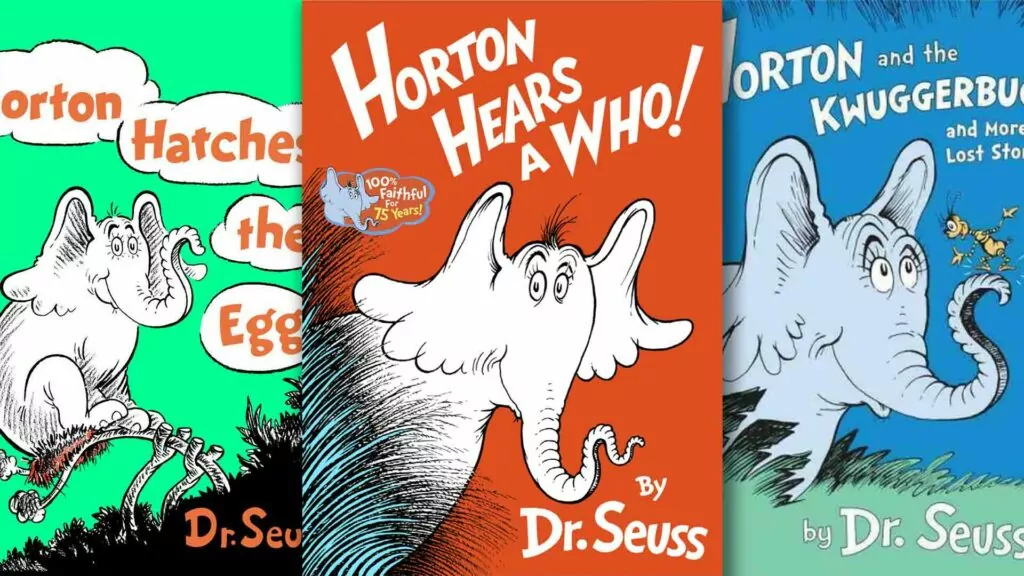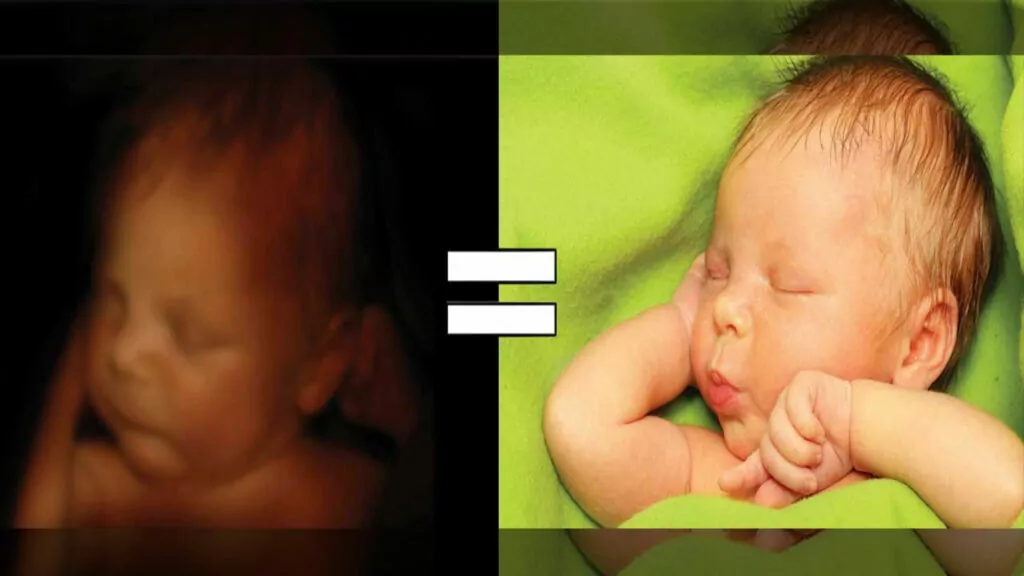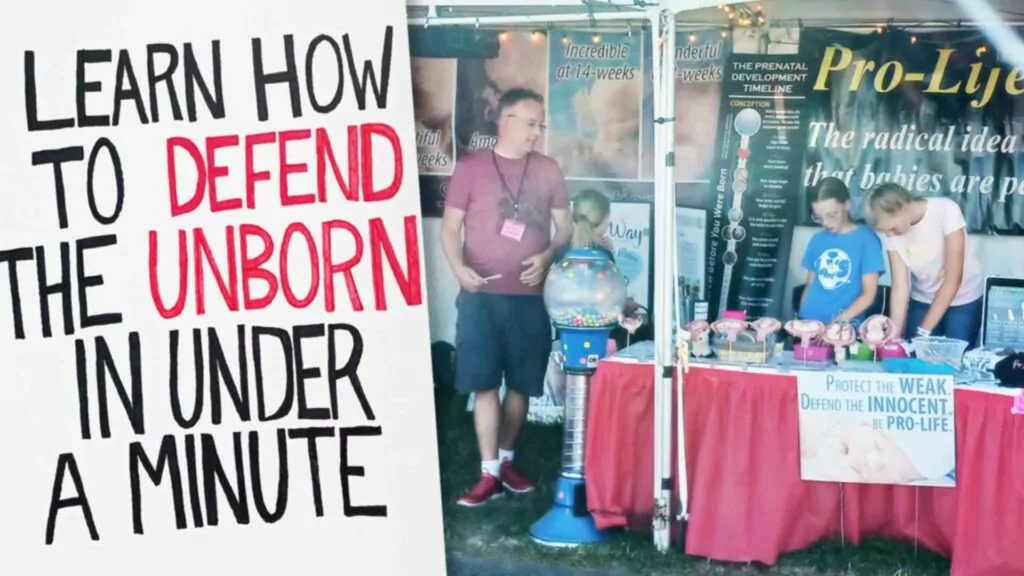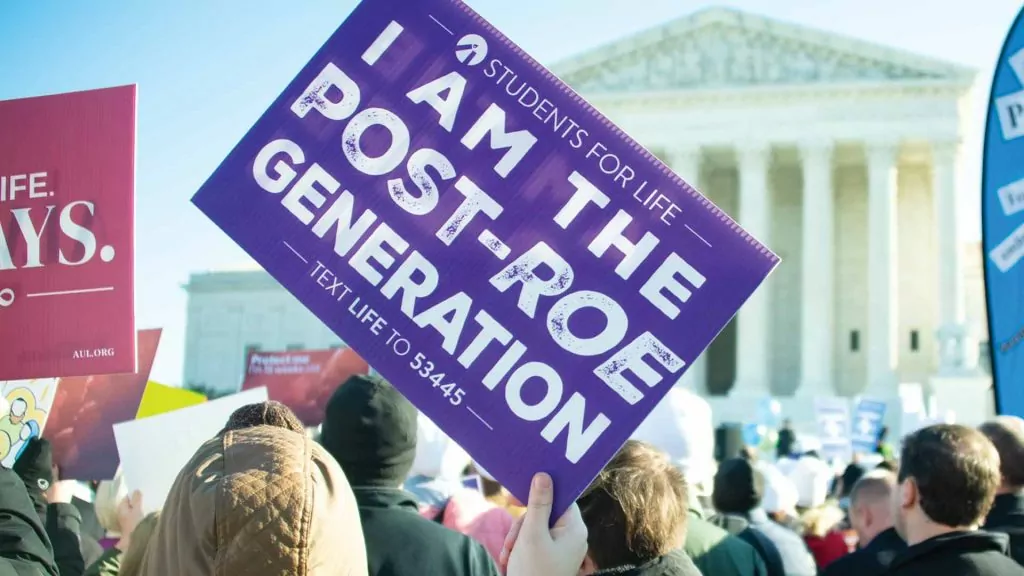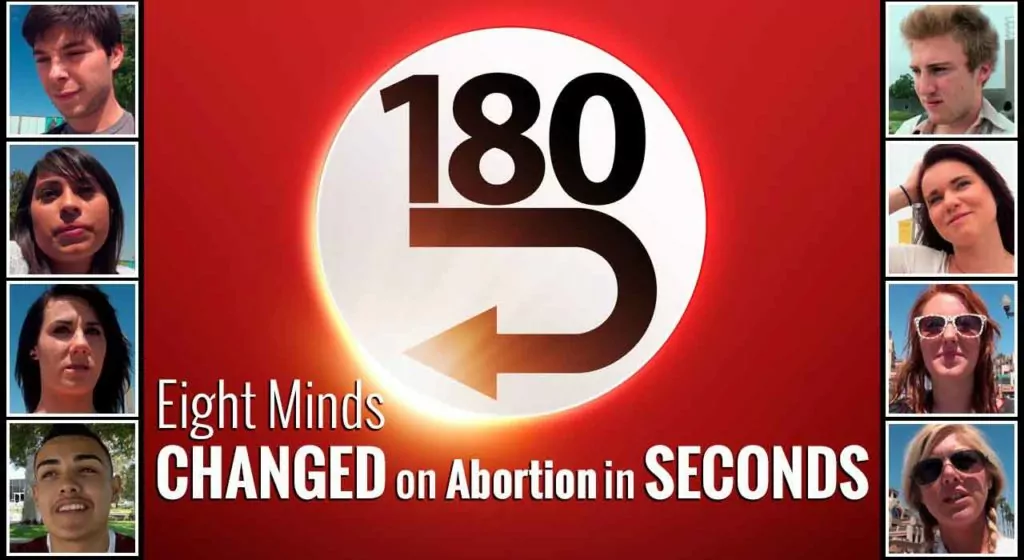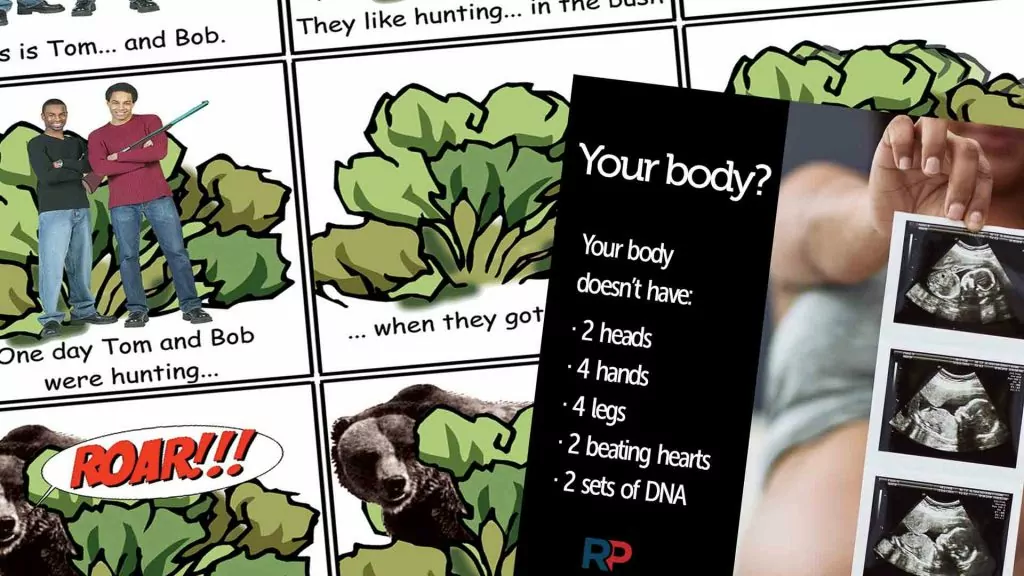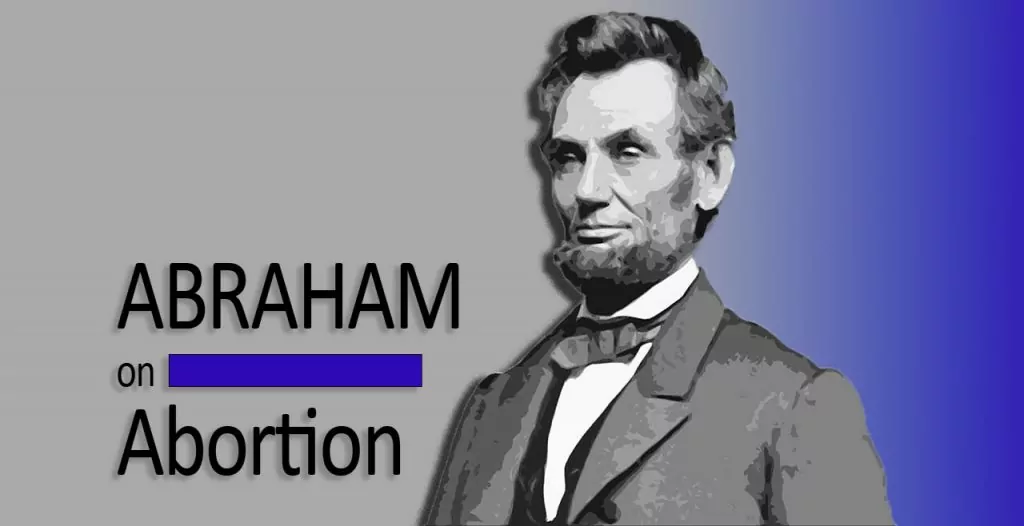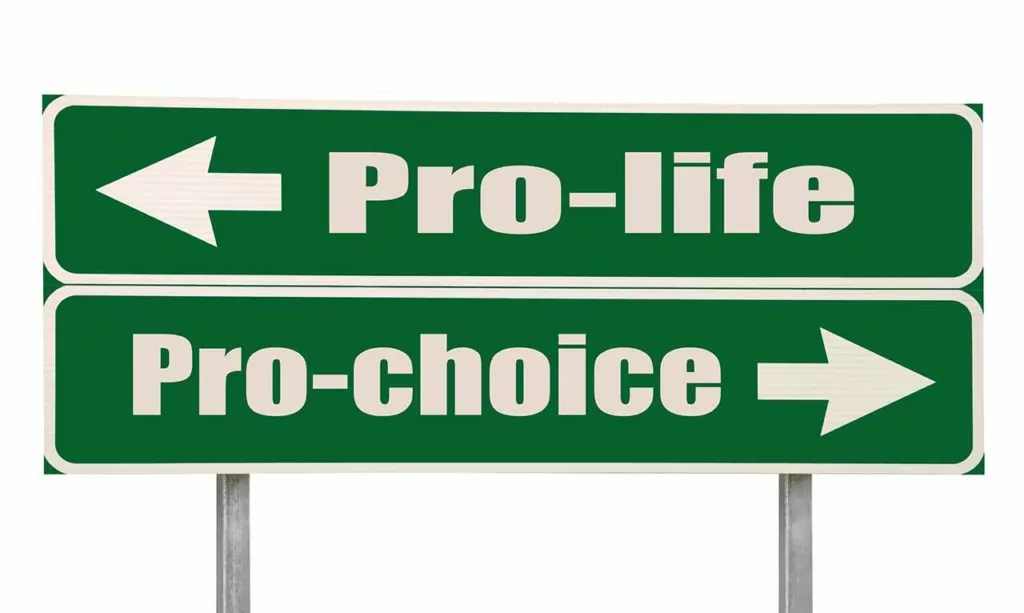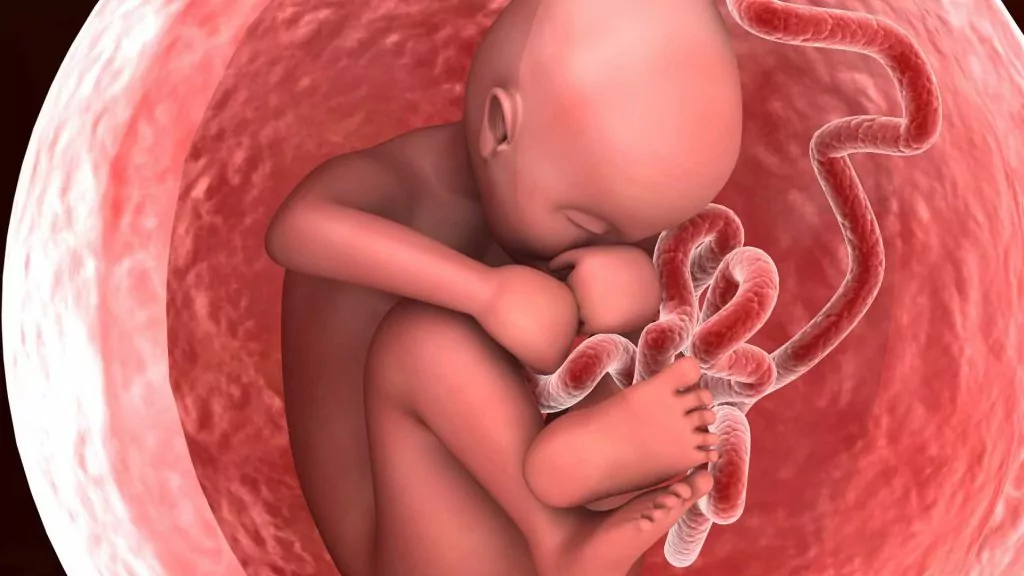Pro-life 101: Removing the red herrings
RED HERRING: In argument, something designed to divert an opponent's attention from the central issue. If a herring is dragged across a trail that hounds are following, it throws them off the scent. – Dictionary.com
*****
It’s about the unborn, but we so often get distracted.
There’s only one issue that matters in the abortion debate, and that’s who the unborn are. If they aren’t human beings made in the very Image of God (Gen. 1:26-27) – if the unborn is just a bit of tissue – then no one should care if a woman goes in for elective tissue to get this bit of excess tissue taken care of. Tonsillectomies, appendectomies, bunionectomies: we don’t protest any of these things. If the unborn aren’t human, no one, including Christians, should object.
But if they are human, if they are fellow Image-bearers, then the unborn warrant the same protection that everyone else has under the law. God has said, “You shall not murder” (Ex. 20:13) and written that on our hearts (Romans 2:14-15) such that even the world acknowledges (or at least knows) that killing human beings is wrong.
So it comes down to just one issue, just one question: “What are the unborn?”
That’s what it’s about…but this isn’t what we most often talk about. Abortion supporters will talk about anything and everything else, trying to distract us with red herrings. And, strangely, pro-lifers will throw out red herrings of our own.
So how can we stay focused? First, we need to be able to spot these red herrings whether offered up by their side or our own. Then we need to always, always, get back to the only issue that matters: the humanity of the unborn.
5 pro-choice red herrings
So what are the most common pro-choice, pro-abortion red herrings?*
#1 "Women have the right to privacy.”
This argument is the basis for legal abortion in the United States, and it is popular in Canada as well. But we all know a right to privacy has limits and can’t be used justify child abuse – parents aren’t allowed to abuse their children so long as they do it behind closed doors!
So the real issue isn’t privacy, but rather whether the unborn is a human being. If it is, then it shouldn’t be abused or killed, even if that abuse/dismemberment takes place behind closed clinic doors.
#2: "Women should have the freedom to choose.”
This is another right that must have limits. We aren’t free to do everything, so the key question here is: “women should have the freedom to choose what?” We don’t believe people should have the choice of whether they are going to kill others, so if the unborn are human beings then they should be protected like all other human beings.
#3: "Women shouldn't have to carry a child conceived through rape.”
The emotional impact of rape can be devastating, and complex. However, the moral issue is clear – it still depends on whether the unborn are human. If the unborn child is human we shouldn’t kill it for the sins of its father (we don’t even kill rapists!). So the issue is not rape, but rather whether the unborn are human.
#4: "Making abortion illegal forces women into dangerous back-alley abortions.”
In what other circumstances are we worried about making crime safer? Bank robbing is also hazardous, but no one thinks that a good reason to make it legal. Thus, if the unborn are humans, we would not be all that concerned that those who want to kill it may have to do so under risky conditions. So, once again, the issue isn’t back-alley abortions, but the humanity of the unborn.
#5: "What about when the woman’s life is in danger?”
Before Canada’s abortion law was struck down, this was one of the reasons abortions would be legally permitted. However, in many instances it was only the mother’s mental, not physical, health that was said to be at risk. So while this was a frequently used justification, it is only a very rare situation in which a mother’s life can be saved by aborting her child.
This might seem an ethically complicated situation, but clarity can be found if we ask the one key question in the abortion debate: “What is the unborn?” If the unborn aren’t human beings, then if the woman’s life was in any sort of danger, abortion should be permitted. However, if the unborn is human, then this baby should be treated as fully human, just like the mother, and treated as such. Then abortion wouldn’t be permitted for faux dangers, as was happening in Canada. But it would be an option where there is a genuine danger, not because the unborn is worthless but because in some circumstances only one life can be saved.
Common ground
Both abortion advocates and pro-lifers employ red herrings and for the very same reason:
pro-choicers raise red herrings because they don’t want to talk about the real issue.
pro-lifers also raise red herrings, and again, it's because pro-choicers don’t want to talk about the real issue.
When the abortion supporters absolutely won’t talk about the humanity of the unborn – when they won’t stick around for it, when they won’t take their fingers out of their ears, when they won’t stop screaming long enough to listen – then what use is there to talk at all? In the face of such bluster there is no reasoning, and no chance to dialogue.
That's why many pro-lifers have changed tactics. Instead of asking the pro-choice side to join with us in common cause for the unborn, we've instead looked for a common foe.
Feminists don’t want to defend the unborn, but they oppose sexism. Can we work together to stop sex-selective abortions, which target girls far more than boys?
Might a woman who cares nothing for the unborn, still be concerned with anything that would impact her own health negatively? Can we save her baby by raising the abortion/breast cancer link and showing her that abortion isn’t in her own best interest?
What of a vegan who catch-and-releases even the flies in her home? Might she be shocked to hear that a 20-week fetus feels pain as its limbs are being torn off one by one? Though she has no interest in the unborn as human beings, she wouldn’t treat her rescued pet goldfish like this. Maybe this sort will join with us in opposing abortion when the fetus is developed enough to feel pain.
These are “red herrings” in that they don’t address the only issue that really matters: whether the unborn is a human being. But we use them because through them we seem able to make the forward progress that can’t be had while talking about the humanity of the unborn.
4 pro-life red herrings
Thus there seems real potential in talking about more than just the humanity of the unborn – trying other approaches can save lives!
But there is also an accompanying danger. The truth is that the only reason abortion should be illegal is because the unborn are human beings. As pro-life apologist Scott Klusendorf has noted, it would be fine to experiment on fetuses, clone them, use them in make-up, harvest them for their stem cells, eat them, kill them for any reason at all… if the unborn were not human beings! But if they are precious human beings like you and me, they deserve the very same protection.
That's the heart of the matter and the only relevant issue.
The danger with using "pro-life red herring" arguments comes when we present these arguments as our only, or main, objection to abortion. These are arguments we can use, but they are not ones we can stand on...because they won’t support us.
What follows are four of the more common pro-life red herrings, and explanations of how these arguments fall to pieces when they are presented on their own, apart from the issue of the unborn’s humanity.
#1: “Maybe your unborn baby is going to cure cancer!”
There are many versions of this argument (it is sometimes called the “Beethoven argument” as in “What if your child is going to be the next Beethoven?”) but all focus on the baby’s potential: the reason a child shouldn’t be aborted is because of what they might do in the future.
But what if a mother already knows that their child isn’t going to be a genius? What if they’ve been given a Down syndrome diagnosis? Do we think the mother should be allowed to abort then? No, of course we do not.
So this isn’t about what the child might be able to do one day, but rather about whether or not they are human beings. If they are, then no matter what they will or will not be able to do some day, they should be given the same protection as all other human beings.
#2: “What if the fetus can feel pain?”
Here the focus is on what the unborn can do right now. Other forms of this argument focus on other abilities: it has brain waves, or a beating heart, or can react to music, etc. But what if a child doesn’t have this ability yet? Would it be fine to abort the child then? No – that’s not what we believe at all.
The real issue for us is not what the unborn can do right now – whether they have this ability or that – but whether they are human beings, made in the very Image of God, just like you and I.
#3. “Studies show that abortion causes breast cancer!”
While some studies show abortion increases a woman’s chance of getting breast cancer, drinking a glass of wine a day, or being overweight also increases her risk. Should we then restrict wine or caloric intake for women? No? Then why would this be a good reason to restrict abortion?
This issue is not whether abortion harms a woman, but whether it kills her child.
#4. “Did you know they’re selling baby body parts?”
The Center for Medical Progress has exposed that Planned Parenthood in the US is selling body parts from the babies they abort. This is contrary to federal law and the details have horrified many millions. In response Planned Parenthood has agreed not to take money for these body parts – they promise to stop selling them, though the abortions will continue. Are we satisfied?
No, our objection isn’t to the selling of body parts, but rather that there are body parts to sell. The killing is what we want to stop.
Using red herrings the right way
To be clear, it’s not wrong for us to use these “pro-life red herrings,” but we shouldn’t rely on them. These are not, after all, our arguments. We don’t believe them. We know it’s not the possibility of breast cancer, or that the fetus could feel pain, that makes abortion evil. That’s not only not our position; we know that it is factually and actually wrong.
Instead, these are arguments we’ve adopted from the other sides’ worldview. We aren’t feminist (or at least, not at all in the way they are) but we can step inside their worldview and consider why a godless feminist might still object to abortion. And then, with that insight in hand, we can confront them with the reason why they, by their way of thinking, should oppose at least some abortions.
But we always want to up be clear about the fact that they’ve got it all wrong. We want to use their arguments, but we sure don’t want to stand on them because they are without foundation.
Thus when we make use of their arguments, they should always be connected to our own. First we adopt their worldview for the sake of argument, and then, once we have them talking, we lay out our own.
Our argument need not be presented explicitly, but it does need to be done clearly. That might seem a contradiction in terms, but that's exactly what has been done by the Center for Medical Progress (CMP). Their brilliant undercover work exposed that Planned Parenthood was illegally selling fetal baby body parts. Their explicit argument was that Planned Parenthood was breaking the law, but barely concealed was the real issue: Planned Parenthood isn’t just doing something illegal, but murderous. The CMP aren’t speaking to the humanity of the unborn, but the video footage they shared speaks for itself. It’s hard to miss the horror of what’s really going on when we hear abortionists laughing as a speaker recollects the time a baby’s “eyeball just fell down into my lap!”
ARPA Canada is another example of how to make good use of red herrings. They use the fetal pain and parental notification arguments, and then put on enormous cross and flag displays (see the October 2014 RP issue for stunning pictures of the Parliament Hill display) that speak directly to the humanity of the unborn. Again, it is hard to miss the horror of what’s really happening when 50,000 pink and 50,000 blue flags – each one representing a child killed by abortion in Canada this year – cover the hillside.
Conclusion
There are many arguments offered in the abortion debate, but just one issue that matters. If we can spot the red herring arguments, and then either clear them away, or put them to our own uses, we will be ready to direct the conversation back to where it belongs. Then we can highlight the humanity of the unborn to a culture and a country that wants desperately to talk about anything else.
May God grant us insight, clarity, and courage as we speak up for these little ones.
Endnote
* These five examples are taken from a list in Making Abortion Unthinkable: the Art of Prolife Persuasion, a DVD-based pro-life apologist group study by Greg Koukl and Scott Klusendorf (that I highly recommend). The wording is mine but the ideas are largely theirs.
A version of this article first appeared in the November 2015 issue....
 Intern Catharine Jordan talking truth about the unborn in Halifax harbor.
Intern Catharine Jordan talking truth about the unborn in Halifax harbor.














